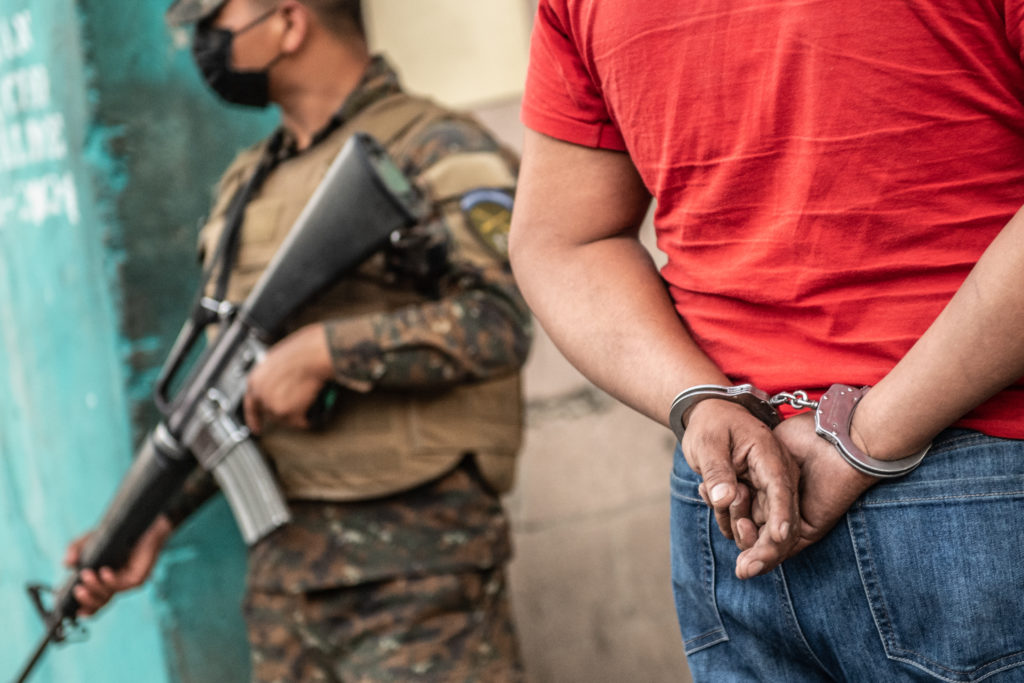 Photo Essay
Photo Essay
El Salvador Under the Gun
Neil Brandvold / Truthdig December 30, 2022 In this photo gallery, Neil Brandvold gives the viewer a glimpse of what life is like today in Nayib Bukele’s El Salvador. 11 photos-
Read Original Story
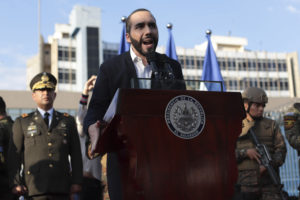 Opinion
El Salvador’s Champion
Juan Martínez d´Aubuisson
Opinion
El Salvador’s Champion
Juan Martínez d´Aubuisson
Since Nayib Bukele, the former mayor of the capital, San Salvador, became president of this Central American nation of 6.5 million people, he has courted bitcoin investors (the digital currency became legal tender in El Salvador in September 2021), launched a wide-ranging crackdown on the country’s street gangs, which local and international human rights groups have charged has been marked by widespread human rights abuses and after a ruling by a friendly Supreme Court cleared the way, announced he will be running for reelection in 2024, a move that opposition parties have charged is a precursor to dictatorship. Nevertheless, since he took office in June 2019, Bukele has maintained a high approval rating. In this photo gallery, photojournalist Neil Brandvold gives the viewer a glimpse of what life is like today in Bukele’s El Salvador.
-
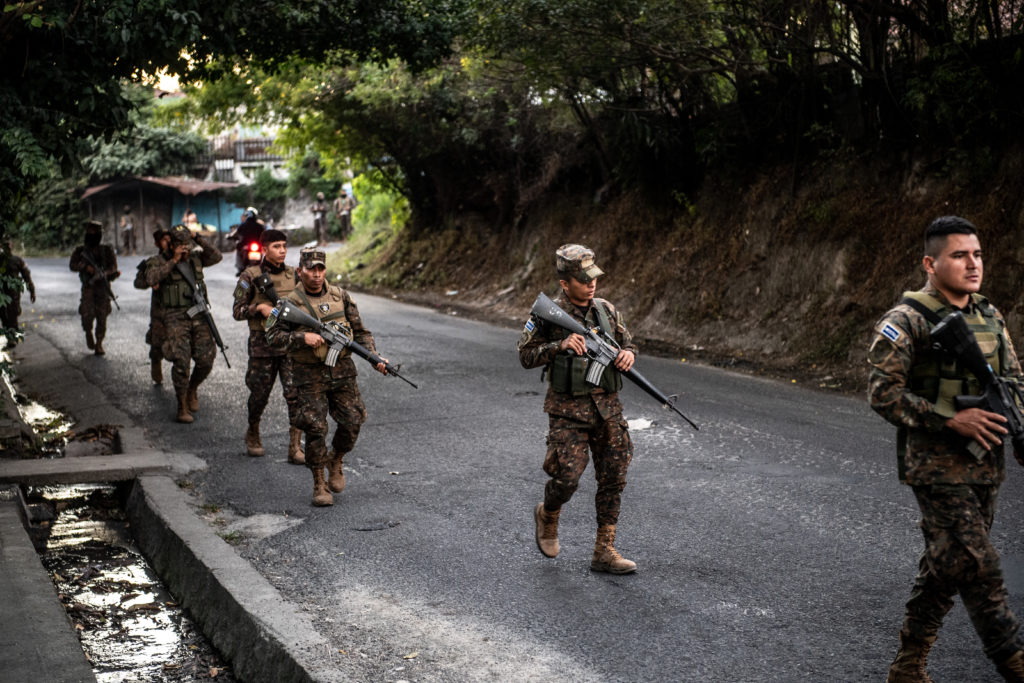
A large number of soldiers patrol the streets of Soyapongo as part of the Cerco Militar, surrounding what is considered one of the more dangerous neighborhoods of El Salvador.
-
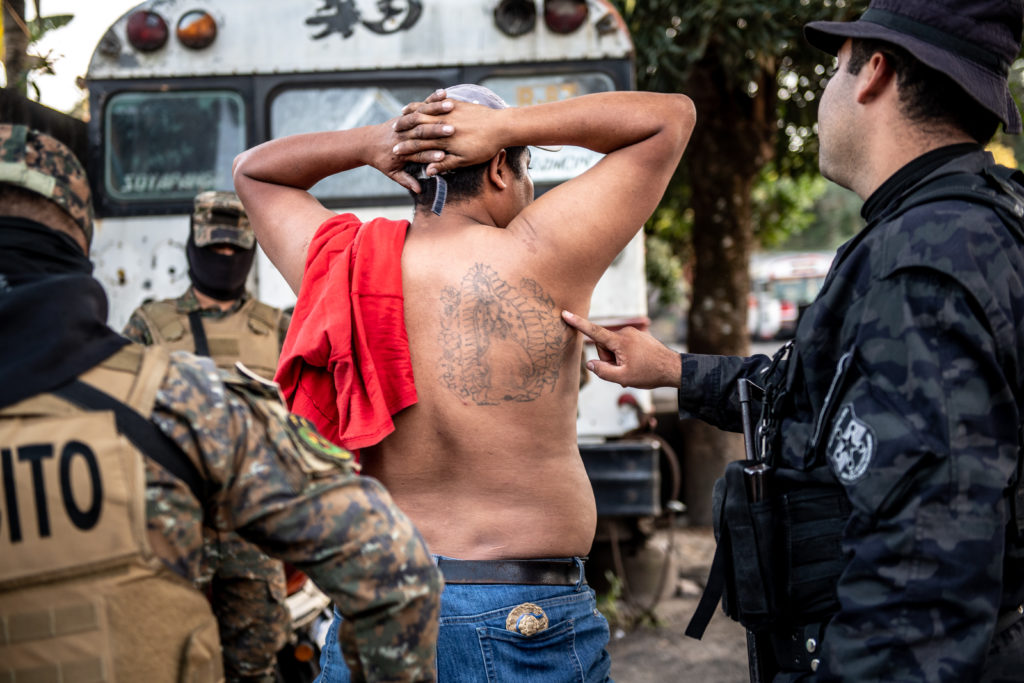
A driver from the internet and cellphone company CLARO is stopped near the entrance of La Campanera while driving his work vehicle. When pulled from the car, the police found a tattoo of the Virgin of Guadalupe, claimed he was an 18th Street gang member and arrested him.
-
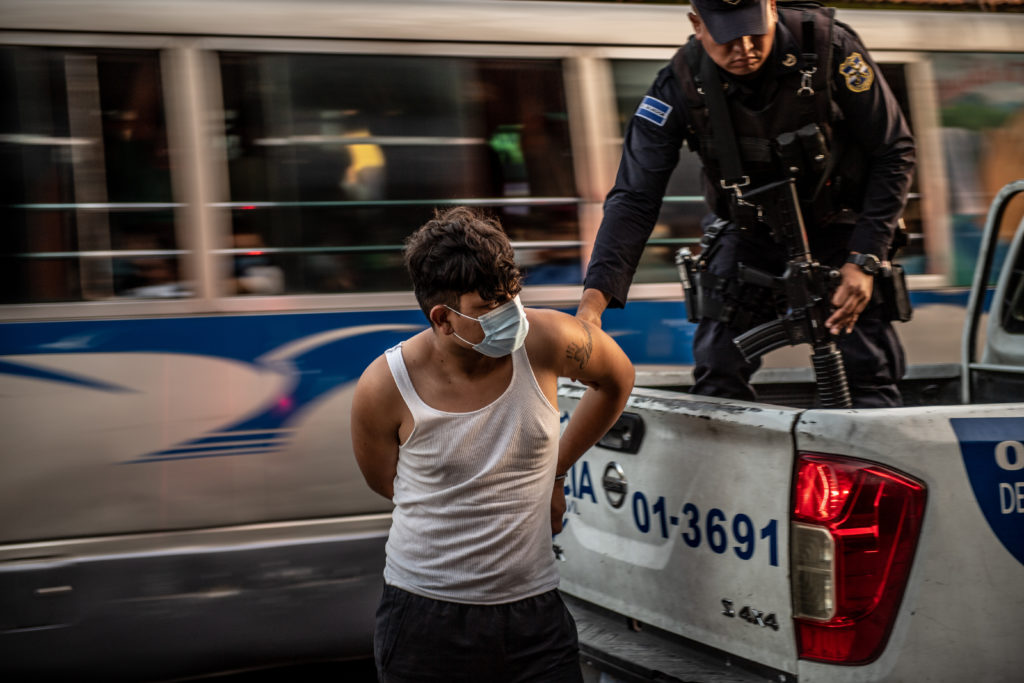
A young man recently arrested in Soyapongo and accused of being a gang member is taken from a police truck to the Penalito detention center.
-
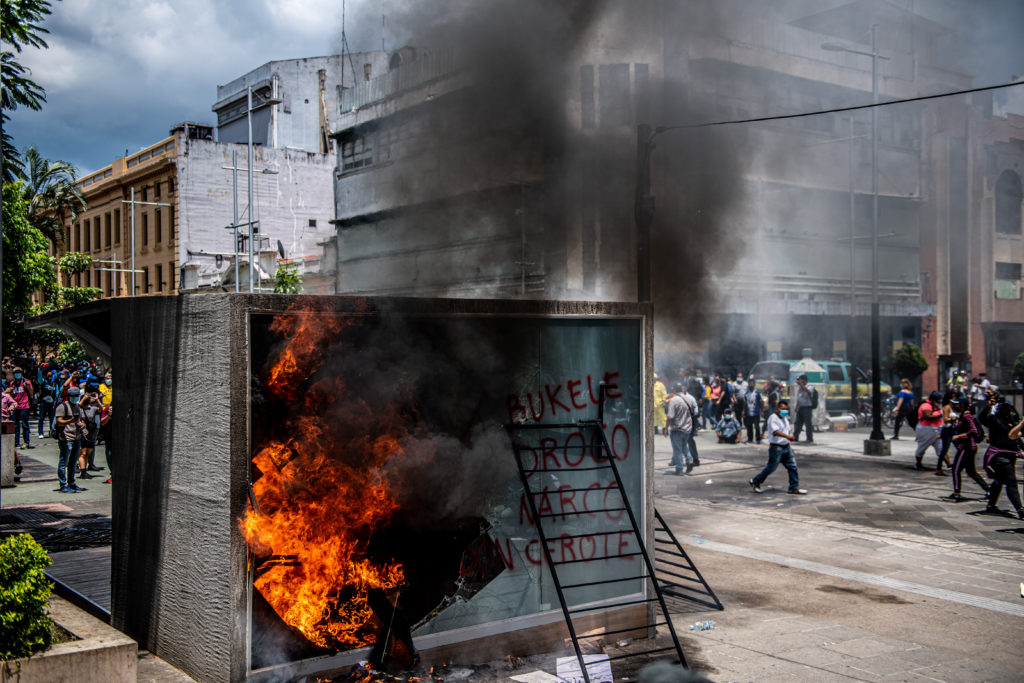
At a protest in San Salvador, a Bitcoin Chivo ATM is set ablaze after its windows were smashed.
-

In front of El Salvador’s El Penalito detention center, where most of those arrested are taken, is a line of hundreds of mothers and wives sleeping on the streets waiting for their relative to be released. Several interviewed had been sleeping there since the start of the state of emergency and have lived on the streets for upwards of 7 months with no information about the charges or ability to access a lawyer. Many live across the country and do not have the money to pay the bus fare so they have opted to live on the street in front of the prisons.
-

At a protest against Bukele’s Bitcoin policies and moves to modify the constitution to allow for re-election, a protester in San Salvador holds a sign reading, “Mr. Asshole with all the power, and the people with nothing to eat. #NotOneMoreDay”
-
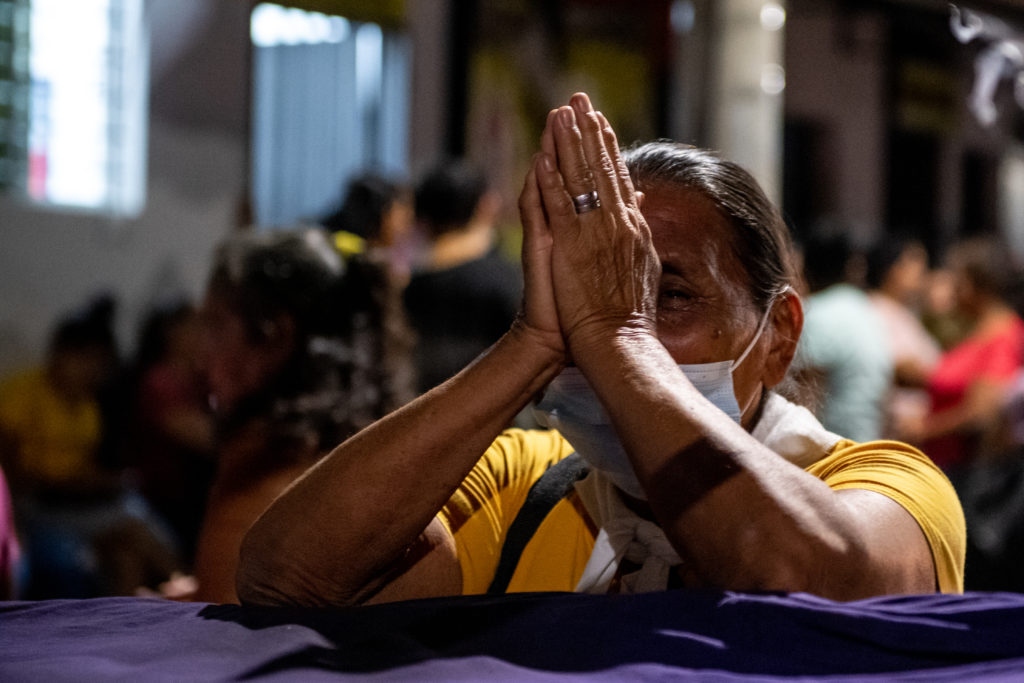
After her son was released and then immediately re-arrested, a woman began to pray outside El Penalito prison. She then stated, “I don’t know when people will stop believing Bukele’s lies. There are no human rights in this country; when will people wake up? What they are doing is torturing us. The constitution means nothing anymore. My son told me they beat them and tear gas them daily, and don’t provide him any medication he needs. He has seen multiple people left dead inside over-crowded cells, and I barely recognized him because he is just bones now. He says he only eats one small meal a day.”
-
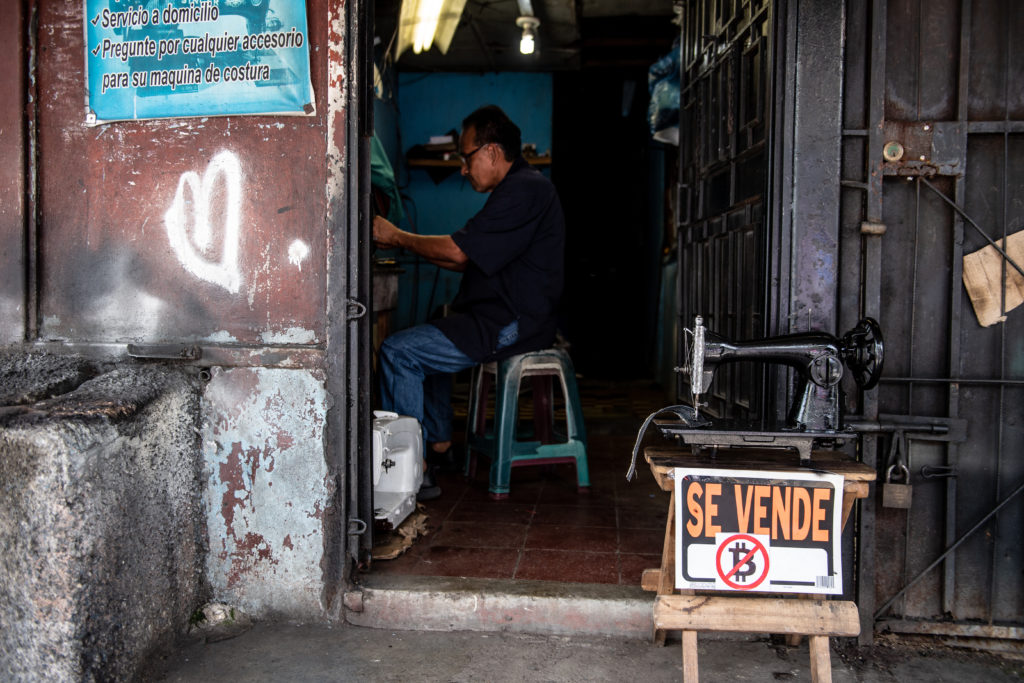
A tailor in downtown San Salvador with a “no-bitcoin” sign. Outside of tourist towns, the cryptocurrency is not trusted or used by the majority of the population.
-
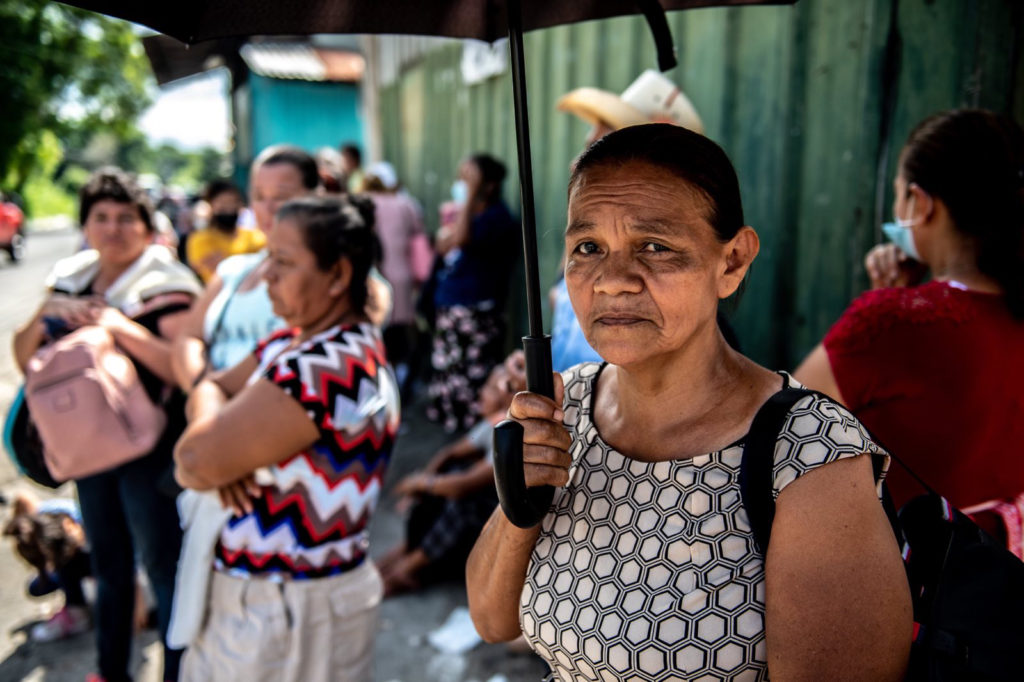
Outside Mariona Prison on the northern outskirts of San Salvador at the beginning of the state of emergency, a line of mothers await information on their relatives rounded up in mass military operations. None were given information and many continue to live on the streets day and night awaiting information or the release of their relatives.
-
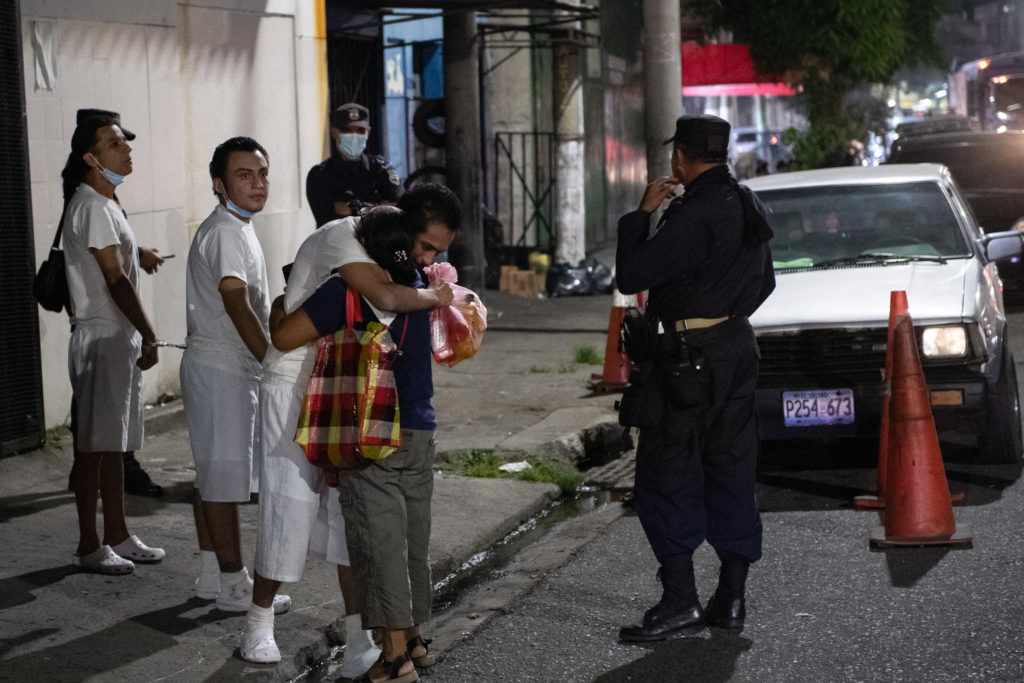 A mother runs up and hugs her son after she is informed by the police that he is being immediately re-arrested after being released from prison; she then tells the officer that her son has no pending charges. He was transferred to another prison and she was not informed where.
A mother runs up and hugs her son after she is informed by the police that he is being immediately re-arrested after being released from prison; she then tells the officer that her son has no pending charges. He was transferred to another prison and she was not informed where.